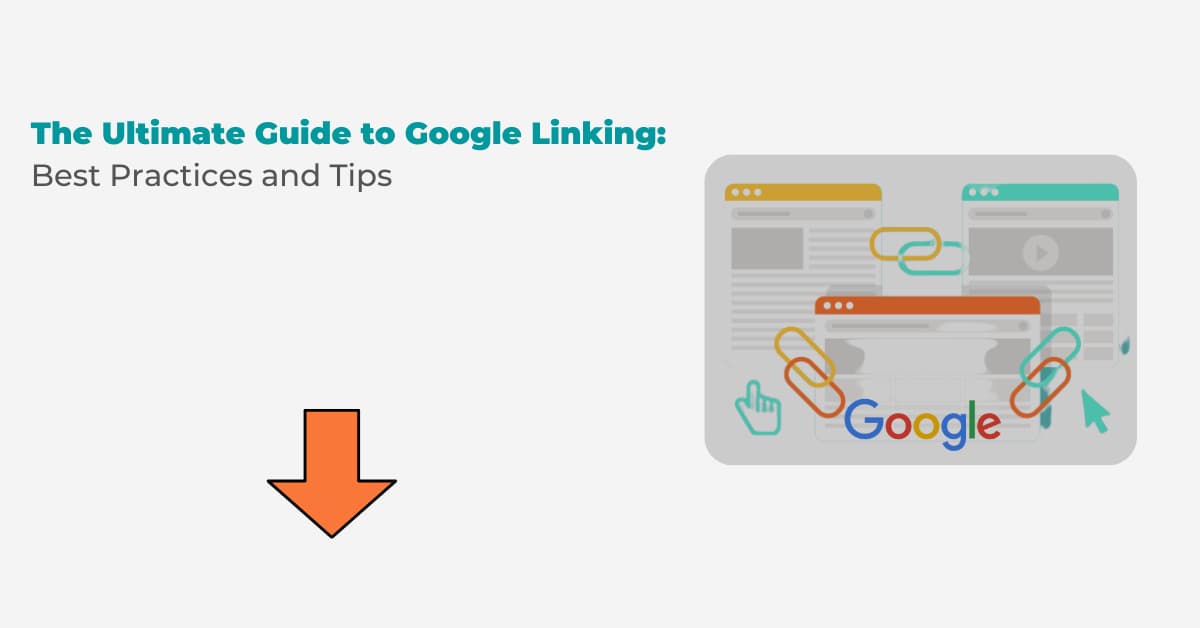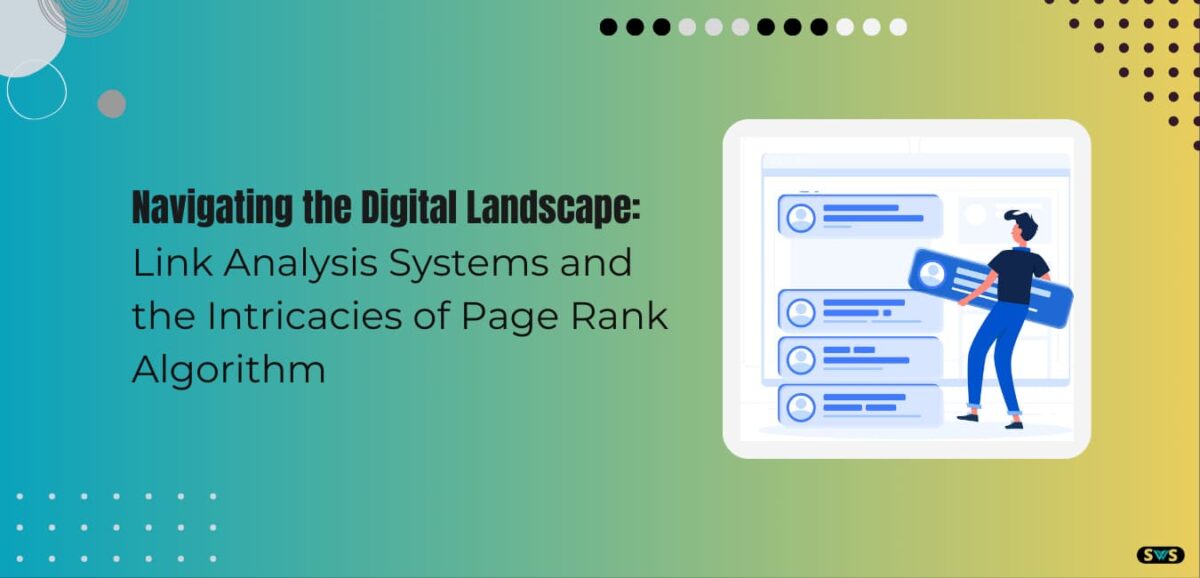Reading Time: 4 mins 37 sec
In this article, we are discussing Best Practices for Linking on Google.

In today’s digital landscape, a solid online presence is essential for businesses looking to succeed in their particular industries.
Businesses must use efficient link-building tactics to increase their search engine rankings and increase organic traffic to their websites as search engine algorithms become more sophisticated and advanced.
What is Link Building?
Building links from other websites to your website is a process known as link building.
These “backlinks,” also known as hyperlinks or “hyperlinks,” are an important ranking factor for search engines like Google because they tell search engines that other websites are referring to your content for their own audiences considered valuable and relevant.
Understanding Google’s Guidelines for Links
Relevance and authority are the two guiding principles of Google’s link-building policies.
Relevance describes the content of the page the link is located.
If you run a blog about pet care, a link from a veterinary website is considered more relevant than a link from a cooking blog.
Google sees relevant links as a sign that your content is meaningful and beneficial to readers.
When a website links to your page, it has authority if it is considered trustworthy.
Google interprets a link to your website from a well-known source in your field as a recommendation for the potential of your content.
However, Google can penalize you if your website receives links from spammy or subpar websites.
Why is Link Building Important?
As previously mentioned, link building is an important ranking factor for search engines such as Google and can help businesses increase search engine rankings and organic traffic to their websites.
Link building can also help businesses develop their brands, form alliances with other companies, and increase their visibility.
Understanding the Importance of Link Building for SEO
One of the main signals Google’s algorithms consider when determining the authority and relevance of a website is the number of links.
A high-quality website linking to your website informs Google that your website is also high-quality.
As a result, your website can rank higher in search results, get more traffic, and be viewed by more people.
Effective Link-Building Strategies
Businesses can use a variety of efficient link-building techniques to increase their search engine rankings and increase the amount of natural traffic to their websites.
Among the most successful tactics are:
Guest posting
Writing and publishing articles on other websites in your industry is known as guest blogging. You can do this to get more exposure and generate backlinks for your own website. It is important to ensure that your content is of the highest quality, relevant to the website’s audience, and includes a link to your own website when you guest blog.
Creation of broken links
The process of broken link building involves locating broken links on other websites and offering to replace them with your own links. Since it benefits the website owner by helping them fix broken links on their own website, it can be a successful backlink-building strategy.
Outreach with infographics
Creating and publishing infographics on your own website, then contacting other websites in your industry to see if they would be interested in sharing your infographic on their sites is known as infographic outreach. This can be a successful strategy for getting backlinks and increasing the authority and visibility of your brand.
Recovery of links
Finding mentions of your company or website online that do not include a backlink is known as link reclamation. The next step is contacting the website owner to ask for the link. Try this strategy to increase your search engine ranking and get backlinks.
Best Practices for Linking on Google
- Focus on high-quality content: The best way to build high-quality links is by creating high-quality, informative, and helpful content. Content is more likely to be shared and linked when it provides value to readers.
- Use relevant anchor text: The clickable text of a hyperlink is known as an anchor. Relevant anchor text should be used for Google to recognize the relevance of the linked page. Avoid using generic anchor language like “click here” or “read more.”
- Look for opportunities to link from trustworthy websites: Links from trustworthy websites are more valuable than those from subpar websites. Look for link opportunities from websites with high domain authority, relevance, and trustworthiness.
- Diversify Your Link Profile: A diverse link profile includes links from blogs, news websites, social media, and directories. This tells Google that your website is relevant to various topics and business sectors.
- Participate in social media: It is possible to get many high-quality links out there. Engage your followers by posting your content on social media. This can increase the likelihood that people will share and link to your content.
Best Practices for Linking to Other Sites
Make sure that the page you link to is highly relevant to the topic of your page when you are linking to other websites.
- Link to high-authority websites: Use a tool like Moz’s Domain Authority or Ahrefs’ Domain Rating to determine the domain authority of the websites you choose to link to.
- Use natural anchor text: Use anchor text that accurately describes the page you’re linking to. The phrases “click here” and “read more” should be avoided.
- Modify the sources of your links and try not to rely too heavily on any one source. Instead, find links to a variety of excellent websites.
Best Practices for Internal Linking
Internal linking refers to links from other pages on your own website.
Internal links can help Google understand the organizational structure of your website and enhance the user experience by facilitating content navigation.
Use accurate anchor text that is descriptive of the page you are linking to.
This helps Google and users understand the linked page.
When linking internally, make sure the page you’re linking to is highly relevant to the page you’re linking to.
Don’t overdo it with internal linking; Avoid excessive linking.
Use them only if they significantly improve the user experience.
Types of Links to Avoid
- Paid Links: Paying for links violates Google’s Webmaster Guidelines and may result in a fine.
- Links from poor-quality directories: This can reduce your website’s ranking. Do not submit your website to directories that are not related to your industry or that have a reputation for spam.
- Exchanging Links: Link exchanges and reciprocal links are no longer as effective as they once were. These links are often of poor quality and can reduce your website’s ranking.
Conclusion
In this article, we are discussing Best Practices for Linking on Google.
A key component of any effective SEO strategy is link building, and there are a variety of strategies that companies can use to increase their search engine rankings and increase the amount of organic traffic to their websites.
Businesses can build their brands, form alliances with other companies, and become more visible and authoritative in their respective industries by putting into practice the strategies described in this article.
Source: Google
- Top 65 Technical SEO Interview Questions And Answers
- Does Bold Text Help SEO
- How To Create The Perfect H1 Tag For SEO
- Google Announces Five Changes Coming To Mobile Search
- Benefits Of Using Semrush
Read Also
FAQ
Can links hurt my website’s ranking?
Your website ranking can be affected if you link to low-quality or spammy websites. Stay away from sending or receiving such links.
How can I find link opportunities for my website?
Find opportunities to link to your website using tools like Ahrefs, Moz, or SEMrush. Additionally, you can request links from other websites in your area.
How to do internal linking properly?
Don’t Use The Same Anchor Text For Two Different Pages
Link to Important Pages
Put Links High Up On Your Page
Use Keyword-Rich Anchor Text
Audit Internal Links With the Google Search Console
How do I make my links crawlable?
Anchor text placement
Write good anchor text
Internal links: cross-reference your own content
Make your links crawlable
External links: link to other sites
Is linking good for SEO?
Yes

